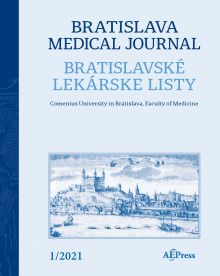Bratislava Medical Journal Vol.113, No.7, p.424–430, 2012
|
| Title: Evaluation of children with neurobrucellosis |
| Author: S. Akbayram, M. Dogan, E. Peker, M. S. Bektas, H. Caksen, M. Karahocagil |
|
Abstract: Background: Brucellosis is an endemic disease in many areas throughout the world. Central nervous system involvement is a serious complication of brucellosis with a ratio of 4–11% of all patients. Aim: to describe our experience in diagnosis, treatment, and outcome of 25 pediatric patients with neurobrucellosis. Patients and methods: This study included a review of medical records of patients who were diagnosed with neurobrucellosis between March 2001 and March 2009. Patients who had both clinical findings consistent with neurobrucellosis and positive microbiologic/serologic examinations of CSF with abnormal CSF findings were enrolled in the study. Results: The study included 25 patients between 1 and 15 years of age (mean 8.8 years), while 15 were males and 10 were females. Most of the patients (52 %) were in the age group of 5–9 years with male predominance. The distribution of cases showed density in June and February. The most commonly presented complaints were headache, fever and sweating while the most commonly observed findings were fever and meningeal irritation signs. All patients had positive cerebrospinal fluid agglutination test for brucellosis. Four different regimens were used based on ceftriaxone, doxycycline, cotrimoxasole, streptomycin, and rifampicin. One patient died, three patients were discharged with sequel, and the remaining patients (84 %) were discharged with full recovery. Conclusion: Clinicians, especially those providing health services in endemic areas like Turkey, should keep in mind that neurobrucellosis can be involved in patients with unexplained symptoms like memory impairment or in patients diagnosed with meningitis (Tab. 5, Fig, 2, Ref. 39).
|
|
| Keywords: neurobrucellosis, treatment, diagnosis, children |
|
|
|
| Year: 2012, Volume: 113, Issue: 7 |
Page From: 424, Page To: 430 |
doi:10.4149/BLL_2012_096
|
|
 download file download file |
|
|
|
|
 download file
download file
